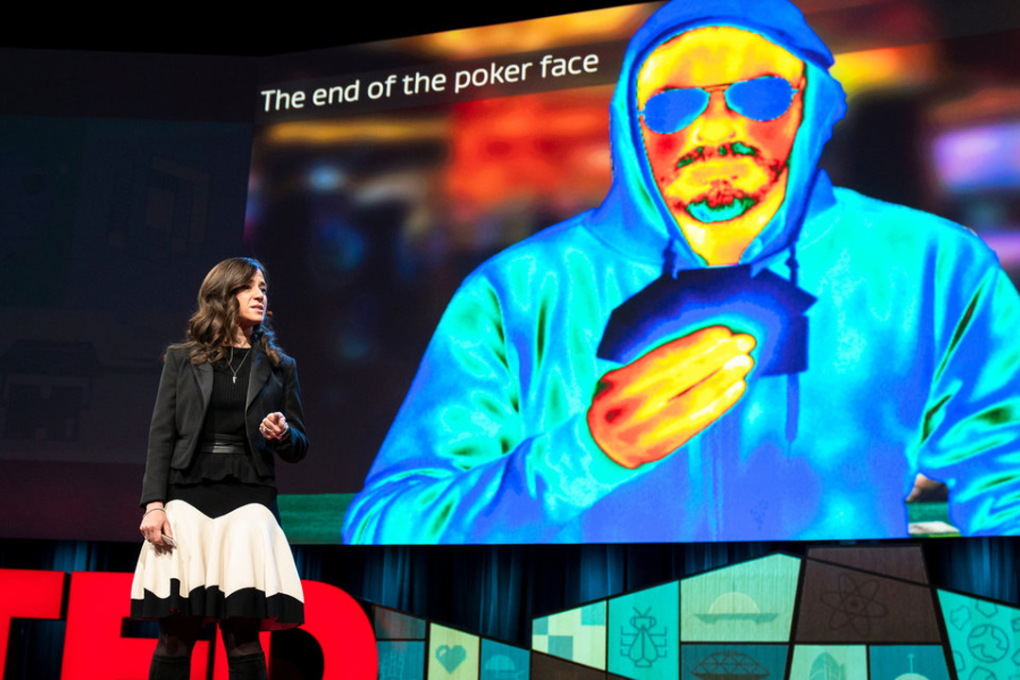Forget Facebook — your body emits data that could be used to read your emotions, check your health and track aggression
New technologies could soon make it possible for companies and institutions to passively track your emotions and health

By Ariel Schwartz
Even if you opt out of Facebook and all it’s data-sharing tendencies, avoid using a smartphone, and generally stay off the internet, you’re still emitting data every second of every day. As Poppy Crum, the chief scientist at Dolby Labs, demonstrated during a talk at the annual TED Conference in Vancouver, Canada, new technologies could soon make it possible for companies and institutions to track your emotions and health using this data.
While onstage, Crum showed the audience a frightening video. She then offered up a data visualisation showing the carbon dioxide exhaled by people in the theatre while the video played.
Crum had, it turned out, been tracking the audience’s carbon dioxide emissions. “You can see where some of us jumped as a deep red cloud. It’s our collective suspense creating a spike in CO2,” she said.
This is the kind of passive data collection technology, according to Crum, that could one day be used to reveal our inner lives to teachers, doctors, and of course, corporations.
“Imagine a high-school counsellor realising that outwardly cheery student is having a hard time...or the authorities knowing the difference between a mental health crisis and another kind of aggression,” she said.
Crum, a neurophysiologist by training, does related research in her day job. At Dolby, she studies how people watch movies using EEG caps, pulse oximeters, trackers that measure heart rate and sweat response, and thermal imaging cameras. The idea, according to The Verge, is to answer a variety of questions that could be used to change the ways films and TV shows are made, including what kinds of scenes cause people to sweat, fall asleep, or get nervous.